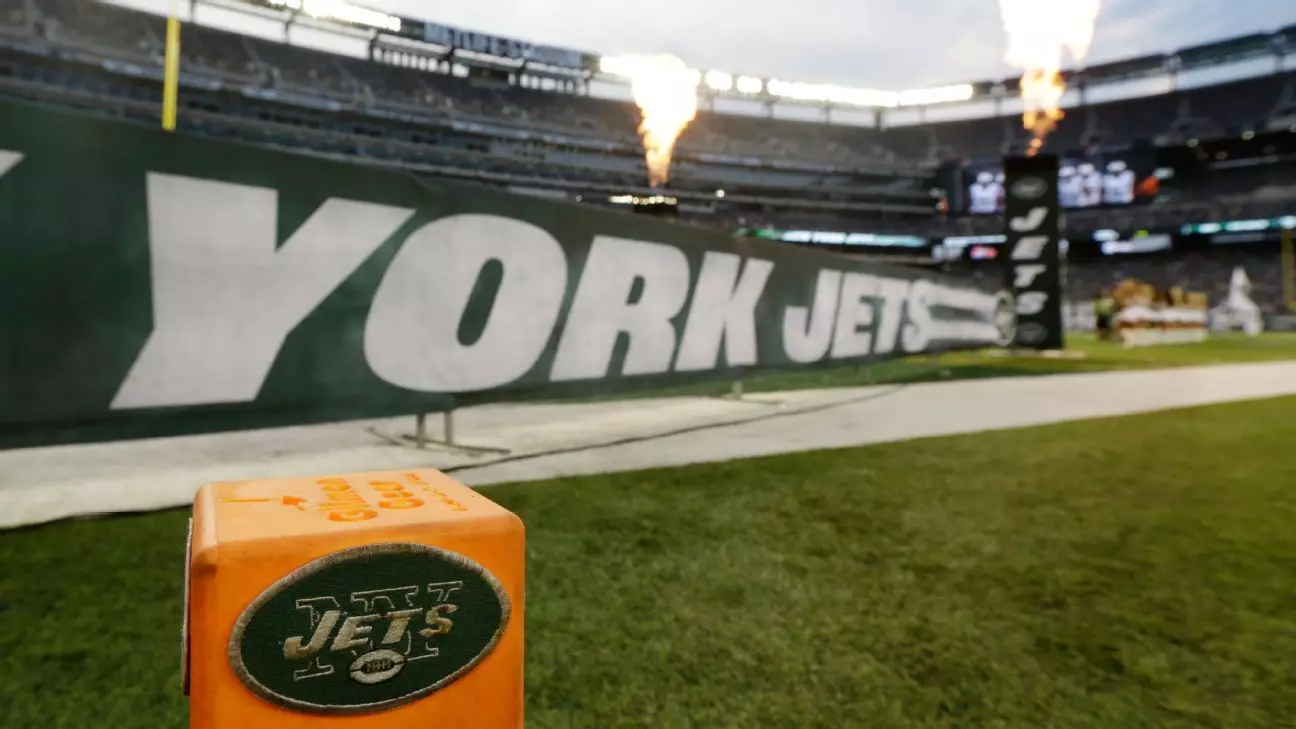The landscape of the NFL is ever-shifting, and for the New York Jets, the introduction of Tanner Engstrand as the new offensive coordinator signals a transformative phase. With Aaron Rodgers potentially returning for the 2025 season amidst uncertainties, this new dynamic could spell opportunities or turmoil. This article delves into Engstrand’s appointment, the prevailing questions surrounding Rodgers’ future, and the Jets’ offensive trajectories that have shaped their recent history.
At the forefront of the Jets’ future is Aaron Rodgers, a talented quarterback whose career has been decorated with accolades. However, at 41 years old, questions loom surrounding his intention to play a 21st NFL season. The Jets organization echoes this uncertainty, as they have yet to fully commit to Rodgers, whose inconsistent performance in 2024 did not reflect his esteemed reputation. The decision surrounding his fate will ultimately influence Engstrand’s ability to steer the offense successfully; an experienced Rodgers could mean a rapid assimilation of new strategies, while the potential departure or retirement of the veteran could force the Jets into a significant rebuilding effort.
The Jets’ management seems to maintain an open lens with respect to evaluating Rodgers alongside their other roster players, as stated by newly appointed head coach Aaron Glenn. This decision to assess all options mirrors the franchise’s historical reluctance to settle on a consistent leadership figure within the quarterback position. Given the typical volatility of playmaking in the NFL, it is commendable that the Jets are taking a comprehensive approach but may also lead to increased instability.
The Jets’ decision to hire Tanner Engstrand marks yet another chapter in the franchise’s ongoing struggle to establish a robust offensive framework. Engstrand’s previous tenure within the Detroit Lions organization, coupled with his connection to the Mike Harbaugh coaching tree, gives him some pedigree. Still, his unfamiliarity with NFL playcalling at the highest level raises eyebrows. Engstrand arrives as the 11th playcaller in 15 seasons—a stark illustration of the Jets’ chronic difficulties in maintaining consistent offensive leadership.
Despite his lack of NFL playcalling experience, Engstrand’s tenure as a passing game coordinator for an offense that ranked first in scoring in 2024 provides a glimmer of hope. His familiarity with successful offensive schemes and relationships built over time could help mitigate the odds against him. Engstrand will need to creatively utilize the talent he has available, which includes rising stars like Garrett Wilson and Breece Hall, to mitigate the instability that has plagued the Jets for years.
Engstrand’s offense must also reckon with the potential departure of Davante Adams, who could be released due to salary cap constraints. The loss of such a prominent asset, unless managed properly, could substantially hinder the growth and effectiveness of Engstrand’s unit.
The Jets’ offensive woes are well-documented, with a history reflecting a lack of scoring capacity, being ranked 32nd over a 15-year span. Factors contributing to this ineptitude include inconsistent quarterback play, rapid turnover in coaching staff, and the inability to develop an effective offensive identity. The decision to again adopt a first-time head coach and playcaller could perpetuate a cycle of uncertainty unless distinct strategies emerge from the collaboration of Glenn and Engstrand.
Furthermore, the connection between Engstrand and general manager Darren Mougey, both alumni of San Diego State University in 2004, could presage a shift aimed at promoting aligned visions for the franchise. Historical ties often foster an understanding that builds a stronger foundation for cooperation, but this alone may not be sufficient to stabilize the Jets in their pursuit of offensive proficiency.
As the New York Jets lace up for the upcoming season, they find themselves at a critical juncture. The hiring of Tanner Engstrand amidst Aaron Rodgers’ uncertain status embodies the duality of hope and apprehension. It’s a delicate balancing act where all elements—coaching, quarterback play, and offensive coordination—must find cohesion to thrive. The pivotal nature of these decisions could redefine the Jets’ future, ultimately deciding whether they remain within the shadows or finally emerge into the spotlight of NFL competitiveness. Only time will reveal how these factors unravel and what the future holds for this long-suffering franchise.



Leave a Reply